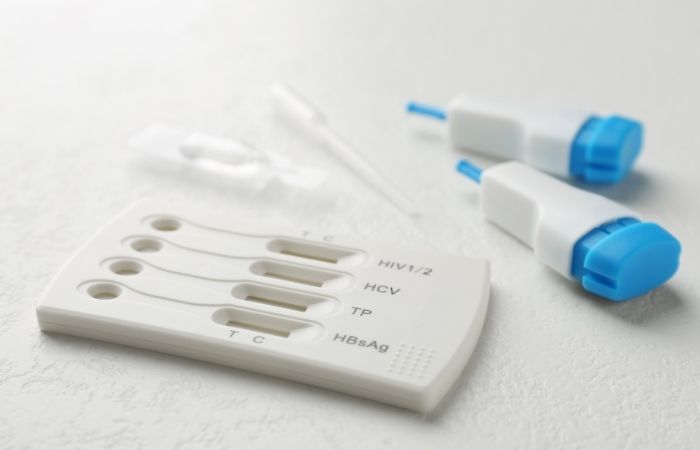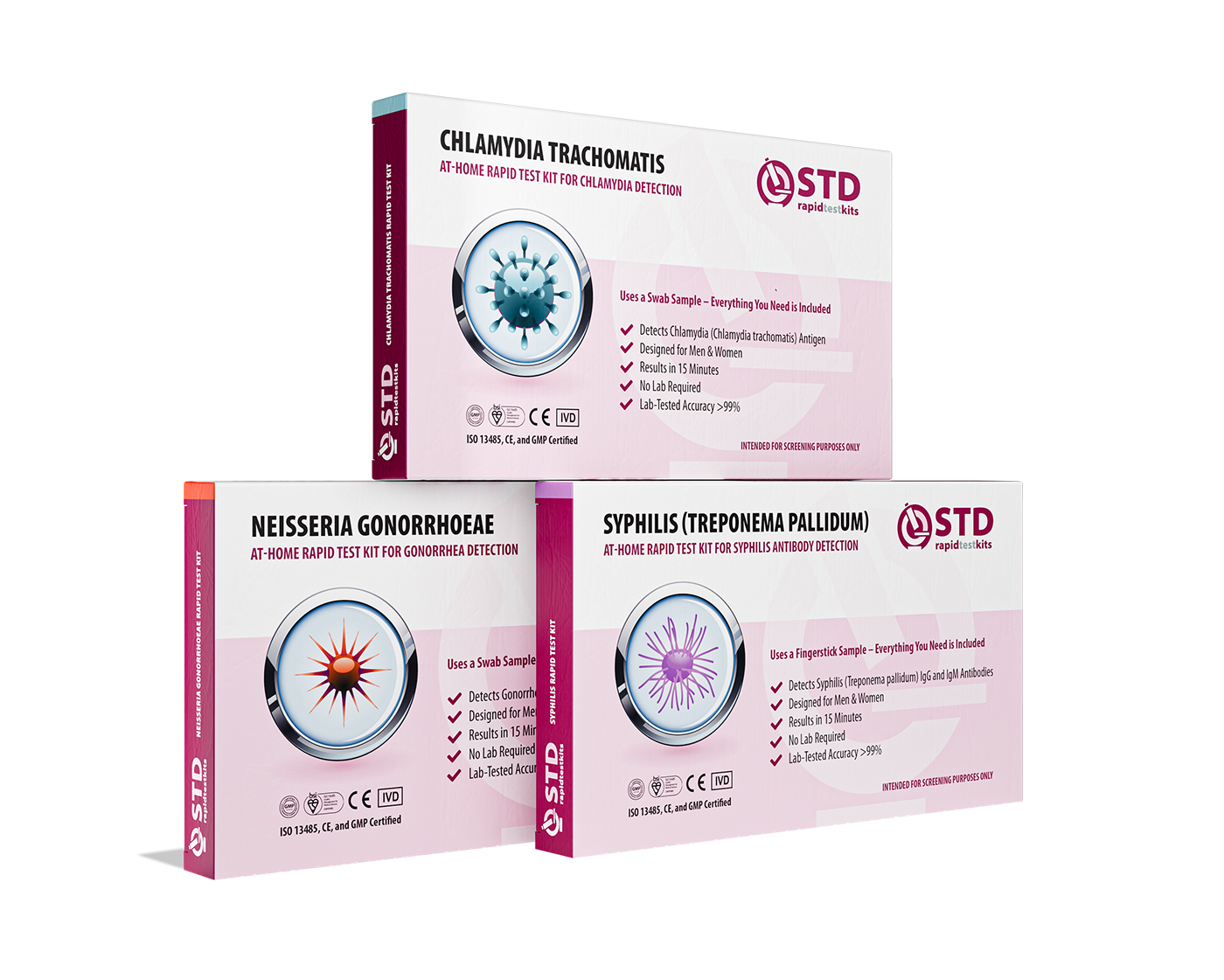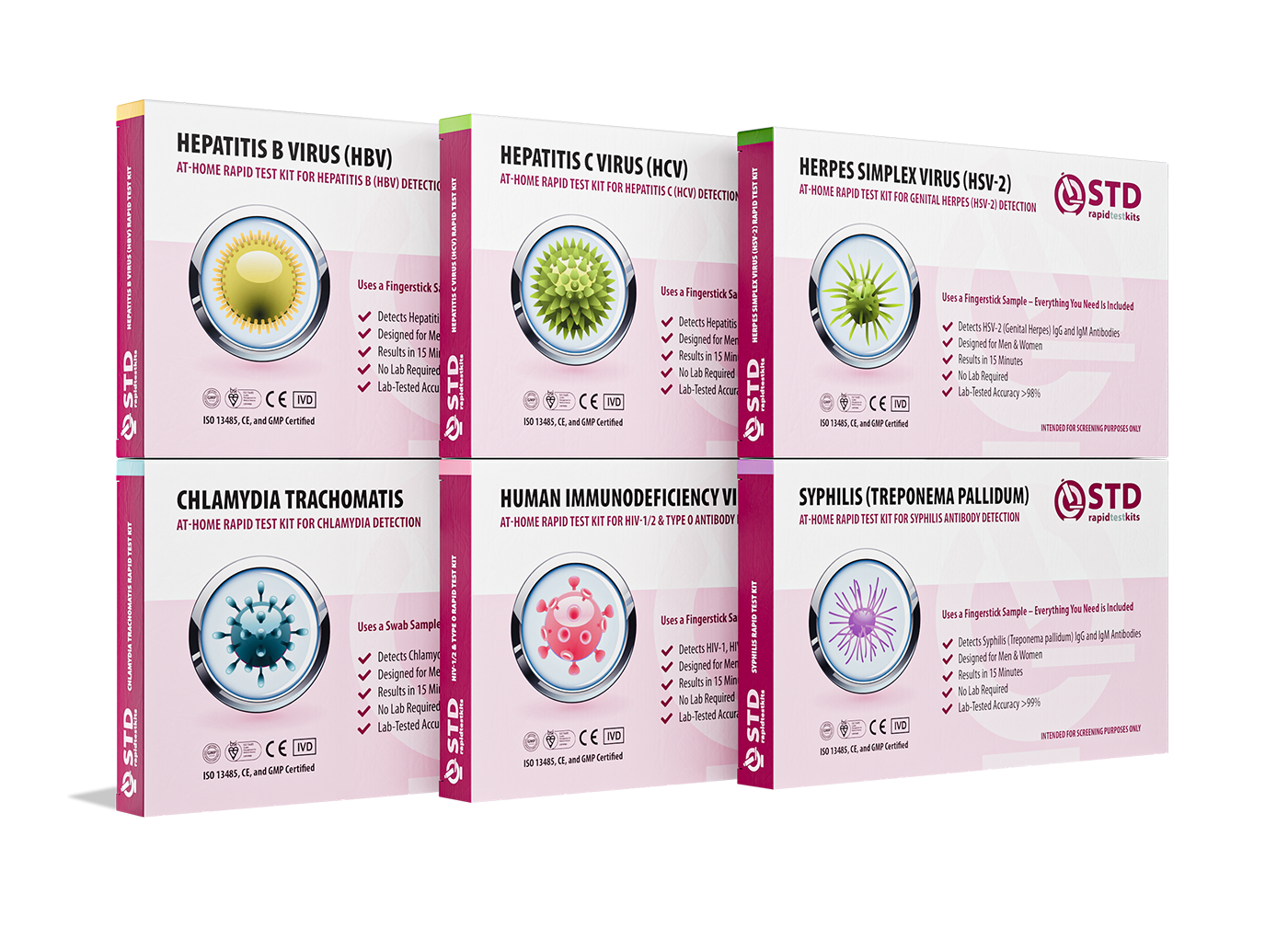Got a Negative STD Result? Here’s Why You Still Might Be at Risk
The Importance of Partner Notification
It is important to understand the "why" before exploring the "how." Letting your partner(s) know will help them get tested and treated as soon as possible. Complications can be minimized and others protected if treated early. Besides, this is also a very great opportunity to further cement your relationship by gaining your partner's trust and promoting openness in communication.

How to Notify Your Partner: A Step-by-Step Guide
Be Emotionally Prepared
Take time to collect your thoughts. It will be easier for both of you if you address this sensitive issue when you are composed.
Learn as much as you can about your medical condition. Understanding your health enables you to address any questions your spouse may have and also dispel any myths.
Timing and Location
Find a quiet place where the two of you can sit and talk without interruption.
Don't bring it up in public or at times when either of you is anxious, such as right before a crucial exam or when one of you is headed to bed.
Be Direct and Honest
First, establish a supportive and non-critical atmosphere. I just got back from the doctor's office and found out that I have [name of sexually transmitted disease], for instance. It's just as important that you get checked, so I wanted to share this with you.
Avoid blaming or accusing words instead say yes to talk and walk on the path of moving on.
Provide Assurance
Communicate that sexually transmitted diseases are very common, though treatable.
Assure your partner that early treatment reduces chances of complication. Be of help and stand by your partner's side as they test and seek treatment.
Order Now $129.00 $343.00 Check Your STD Status in Minutes
Test at Home with Remedium
7-in-1 STD Test Kit




For all 7 tests
Provide Materials
Refer them to local clinics or in-clinic testing services where they can get tested.
Mention how at-home STD testing kits have privacy and are more convenient.
Prepare for Reactions
Put yourself in your partner's shoes, and they may be very surprised, depressed, or even angry. Take it not personally and allow them to process their emotions.
Be patient and encourage open dialogue to help resolve issues they may be having.
Testing and Treatment Support
Let your partner know that they, too, need to get tested, even if they do not have symptoms. This is for their protection and also helps in preventing the further spread of the virus.
If they are apprehensive about getting tested, you may reassure them that you can accompany them to the clinic or share testing materials together.
Follow-up
After the talk is over, make sure to check in with your partner. Both your concern for them and the necessity of taking action come across in this.

Questions That Are Sure to Come Up During the Conversation
"How did this happen?"
Inform them about the importance of getting tested regularly and how the disease is transmitted. Do not blame.
"Am I infected?"
You want your spouse checked for reassurance, even though he or she has no symptoms.
"What's next?"
Gives follow-through action, such as making a doctor's appointment or getting a self-testing kit.
"How will this affect our relationship?"
You can reassure your spouse that your life does not have to be run by challenges of living with sexually transmitted infections.
Order Now $119.00 $294.00 Check Your STD Status in Minutes
Test at Home with Remedium
6-in-1 STD Rapid Test Kit




For all 6 tests
Testing Options and Their Pupurposes
Testing is necessary for informing your partners. If you do not want your identity disclosed, several clinics have anonymous or confidential notification options available for you. You may also test discreetly without actually going to the clinic using an at-home STD test kit. Most people prefer the use of these kits as they are very accurate and pretty simple to operate.
A Call to Healthier Living
It takes care and responsibility to tell a sexual partner about an STD diagnosis, though it is sometimes very hard. You and your partner may both feel you're taking responsibility for your sexual health when you're able to communicate openly and you trust each other. Your health and the health of the community depend on you taking this step, whether you opt for in-clinic testing or use at-home test kits.
It all starts with having the conversation, getting tested, and taking responsibility for your health together.

Strategies to Handle Various Situations
Disclosure to a Current Long-Term Business Partner
Think it over together. Use statements such as, "We'll get through this together," that are inclusive and reinforce the need to stand together.
Get everyone on the same page by sharing your testing schedule. By doing so, confusion regarding the possible time of infection with the STD might be avoided.
Communicating with a Casual Partner
Be polite and brief. Example: "I was recently diagnosed with [STD name] and I wanted to let you know," To be on the safe side, you may want to consider getting tested.
Avoid irrelevant details unless asked specifically.
Telling an Ex
Be straightforward, yet considerate. Reopening old sores is not what is needed; what is, is their well-being. The sender may have wanted to share some medical information with the receiver. Works great; I just learned I have [name of sexually transmitted disease], and you probably should get tested too.
Using Notification Services through Anonymity
Many online services and health organizations offer confidential partner notification in case it is too overwhelming to talk to your partner directly. You can use them to send a discreet email or message to your partner with the information they need.
Order Now $69.00 $147.00 Check Your STD Status in Minutes
Test at Home with Remedium
3-in-1 STD Test Kit




For all 3 tests
Sorting Out the Myths About Partner Notification
"Testing is only required for people with multiple partners."
STIs - Sexually Transmitted Infections- affect anyone. Healthy relationships depend on open communication.
"I won't worry unless I have symptoms."
While many sexually transmitted diseases may not have symptoms at all, they can still cause severe complications or be passed to someone else. Testing is the only sure way to know.
"I'm scared this conversation will break up my relationship."
Even though it's natural to be afraid of the response, being open is usually met with a positive response. Trust usually follows honest questions about health.

Tips to Help Drive the Discussion
From here are extra tips to support you if it makes you feel nervous:
- Puts Your Comments in Your Pocket: Rehearse with a buddy or write key points down on paper. Through this, you will become more confident and prepared.
- Keep it Simple: Do not tell your partner everything all at once. Explain the basics and leave them with questions to ask.
- Refer them to Credible Sources: For any technical questions your partner may have, you are supposed to refer them to appropriate resources like Centers for Disease Control and Prevention or a local health clinic.
- Show Compassion: Recognize how they feel and assure them that you are there for them whenever they are ready to discuss.
The Advantages of Honest Dialogue
Building Trust and Mutual Understanding
When people open out to one another, it strengthens their relationships.
Preventing complications and safeguarding others
The goal of early diagnosis and treatment, which promotes better health.
A Self-Empowerment Strategy
Being proactive about your health and your communication shows you care.
Order Now $119.00 $294.00 Check Your STD Status in Minutes
Test at Home with Remedium
6-in-1 STD Test Kit




For all 6 tests
FAQs
1.- How long after my diagnosis should I notify my partner?
If you want to prevent the spread of the disease and have them treated as soon as possible, you need to tell them now.
2.- What if I have absolutely no way of contacting an old partner?
To tell them without causing a scene, use the anonymous partner notification program provided by the health department.
3.- Will my identity be kept confidential while this is happening?
Yes, most medical facilities have confidential methods of notification.
4.- Will my partner react badly?
Let them have their feelings in private and encourage them to talk about it. Stay calm and listen for what is relevant to your health.
5.- Am I supposed to inform my current partner if I have a history of partners or not?
Any spouse who might have been in contact with the infected person when he or she was alive should be told.
6.- When should somebody be told?
Your doctor will be able to advise you based on your medical history and diagnosis.
7.- What if my partner refuses to be tested?
You can't make anyone do anything, you can only offer them the opportunity and let them know how important it is to them getting tested for you.
8.- Do I have to legally tell a sexual partner?
It depends on the sexually transmitted disease and specific local laws. For some illnesses, such as HIV it may be required by law.
9.- Can I write a letter, send an email, or SMS to my partner?
Yes, it is possible especially if it is impossible to meet face to face. Be polite and concise.
10.- What do I do if I am just beginning a relationship?
Be honest from the start. It is better to be honest right from the start than have issues of trust later in the relationship.
Be an Agent of Your Own Health
Notifying partners is a responsible and compassionate action. Both the health of your partner and public health are served best by your telling. Regardless of the choice of going for at-home STD test kits or those in the clinic, being quick and honest with communications is paramount.
Know that you are not alone. There are health professionals, testing options, and resources that can help you through this process. Today is the time to begin, so take the step and encourage your partner to join you.
Sources
1.- Partner Services for STD Prevention (NCBI)
2.- Case-Finding Effectiveness of Partner Notification (STD Journal)
3.- The Importance of Partner Notification in STD Management (STD Hub)
4.- Partner Notification and Expedited Partner Therapy (PubMed)










